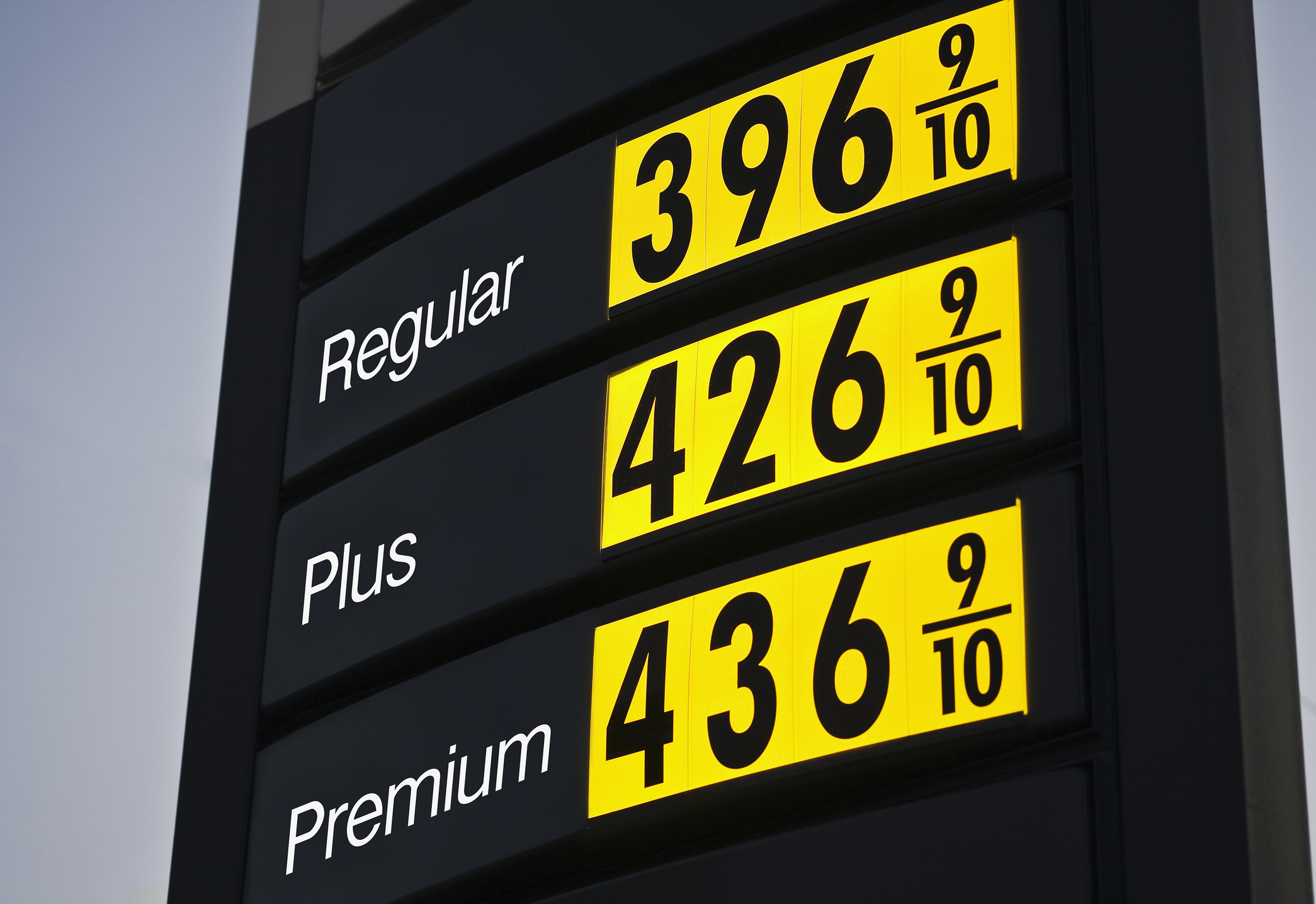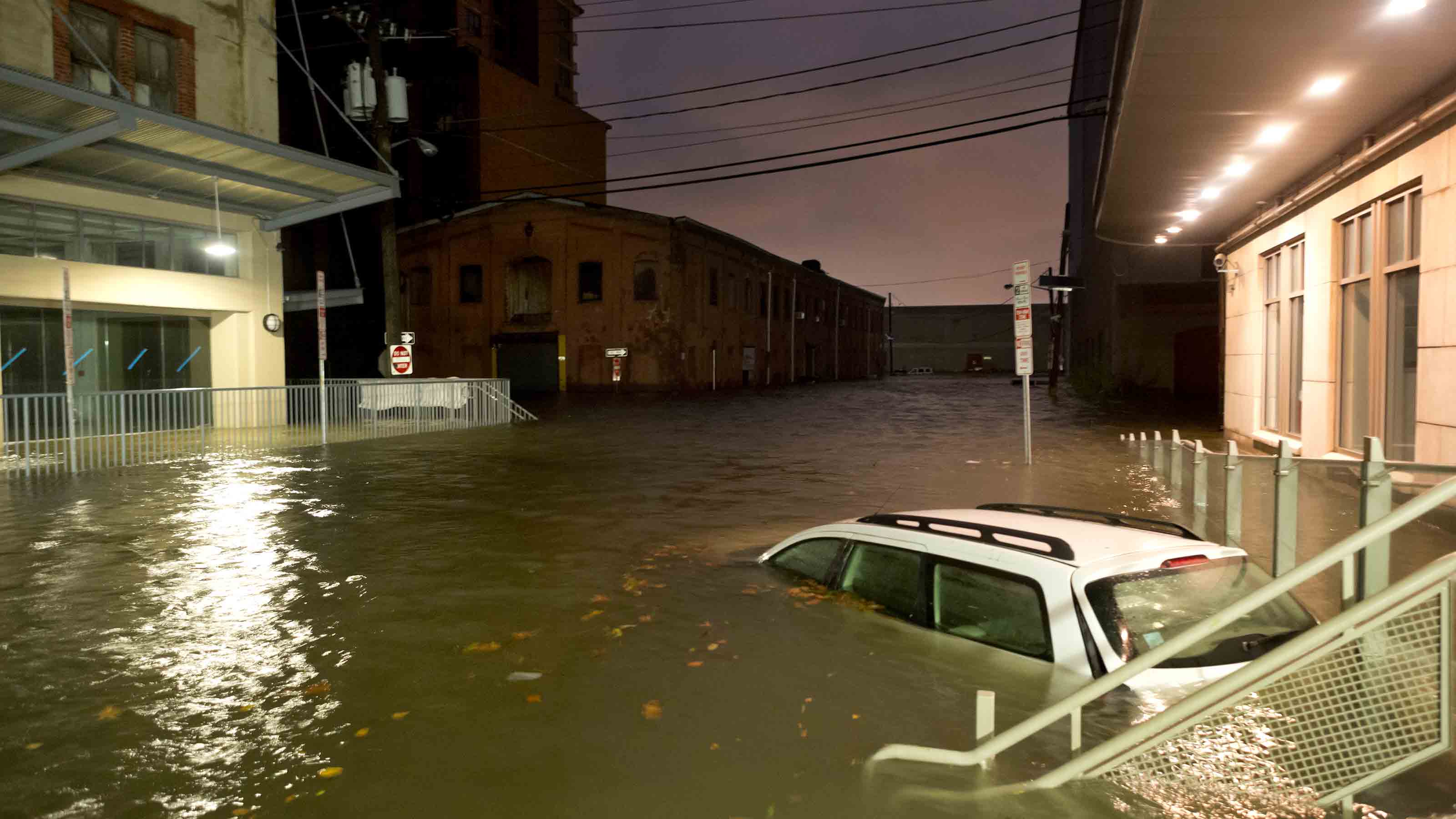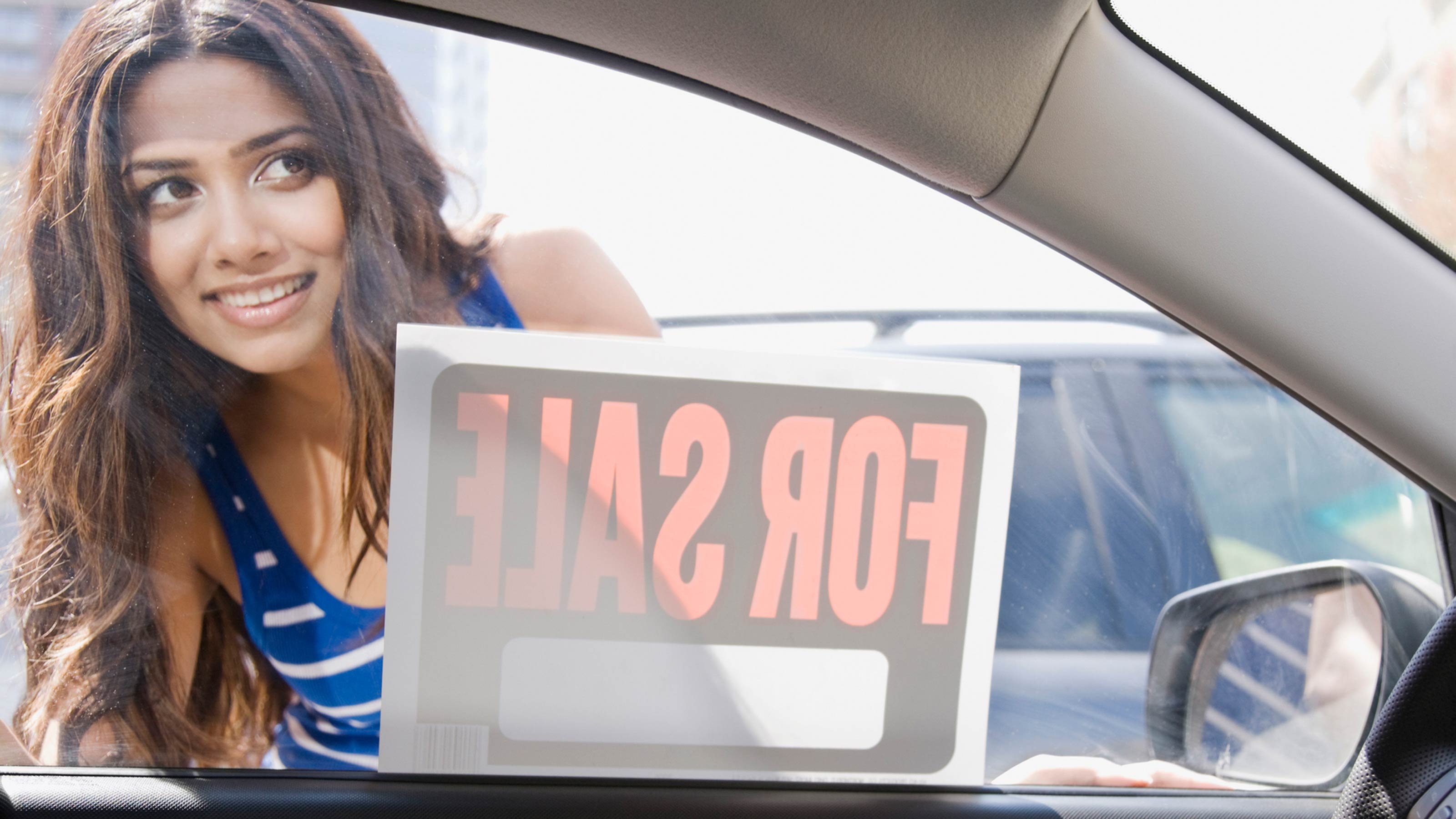Finally, Your Real MPG
Fuel economy ratings haven't always lined up with actual drivers' results. Now, new estimates for 2008 will reflect real-world miles per gallon.

Profit and prosper with the best of Kiplinger's advice on investing, taxes, retirement, personal finance and much more. Delivered daily. Enter your email in the box and click Sign Me Up.
You are now subscribed
Your newsletter sign-up was successful
Want to add more newsletters?

Delivered daily
Kiplinger Today
Profit and prosper with the best of Kiplinger's advice on investing, taxes, retirement, personal finance and much more delivered daily. Smart money moves start here.

Sent five days a week
Kiplinger A Step Ahead
Get practical help to make better financial decisions in your everyday life, from spending to savings on top deals.

Delivered daily
Kiplinger Closing Bell
Get today's biggest financial and investing headlines delivered to your inbox every day the U.S. stock market is open.

Sent twice a week
Kiplinger Adviser Intel
Financial pros across the country share best practices and fresh tactics to preserve and grow your wealth.

Delivered weekly
Kiplinger Tax Tips
Trim your federal and state tax bills with practical tax-planning and tax-cutting strategies.

Sent twice a week
Kiplinger Retirement Tips
Your twice-a-week guide to planning and enjoying a financially secure and richly rewarding retirement

Sent bimonthly.
Kiplinger Adviser Angle
Insights for advisers, wealth managers and other financial professionals.

Sent twice a week
Kiplinger Investing Weekly
Your twice-a-week roundup of promising stocks, funds, companies and industries you should consider, ones you should avoid, and why.

Sent weekly for six weeks
Kiplinger Invest for Retirement
Your step-by-step six-part series on how to invest for retirement, from devising a successful strategy to exactly which investments to choose.
The car industry has kept a dirty little secret for years: The widely publicized Environmental Protection Agency fuel-economy ratings overstate the miles per gallon you're likely to get.
Those of us who calculate our mileage at every fill-up knew the truth. The general public began to notice when the redesigned Toyota Prius hit showrooms several years ago. Although the EPA said the Prius got an astronomical 60 mpg in the city and 51 mpg on the highway, Prius drivers -- and the media -- registered miles per gallon in the 40s.
| Row 0 - Cell 0 | Find Out Your Car's Real-World MPG |
| Row 1 - Cell 0 | Saving the World With French Fries |
| Row 2 - Cell 0 | No-Gas and Low-Gas Cars |
Toyota and other carmakers acknowledge that the EPA numbers often overstate fuel economy, but the testing process and window-sticker ratings are controlled by reams of regulations. Now, new tests for 2008-model vehicles will more closely reflect real-world fuel efficiency. Look for the revised numbers on the window stickers of 2008 models. For now, check out our new tool that gives you estimates of what fuel economy will be for about a thousand 2007 models under the new tests.
From just $107.88 $24.99 for Kiplinger Personal Finance
Become a smarter, better informed investor. Subscribe from just $107.88 $24.99, plus get up to 4 Special Issues

Sign up for Kiplinger’s Free Newsletters
Profit and prosper with the best of expert advice on investing, taxes, retirement, personal finance and more - straight to your e-mail.
Profit and prosper with the best of expert advice - straight to your e-mail.
Driving like Grandma
Mileage tests were developed when we more or less channeled our grandmothers' driving. Cars are run in a lab on a treadmill. The air conditioner is turned off, test speeds are conservative, and there are no fast starts. In 1985, after an EPA study found that drivers were achieving lower fuel economy than predicted by the tests, the agency concocted a formula on paper to lower the official figures. But the formula didn't bring the numbers down far enough, and in 2002, the environmental group Bluewater Network (a division of Friends of the Earth) petitioned the EPA to update its procedures.
The new standards will get closer to reality by factoring in higher speeds, stop-and-go driving, more-aggressive acceleration, use of air conditioning and driving in colder temperatures. Mileage will still vary, but the tests will reduce estimated city mpg by 12%, on average, and highway mpg by 8%, according to the EPA. Hybrids' fuel economy is likely to get a haircut of up to 30% for city driving and 20% for highway.
Fuel-economy confusion
Carmakers generally approve of the new tests because they have heard enough grumbling from buyers. "It isn't good for anybody" when customers don't get the fuel economy shown on the window sticker, says Edward Cohen, of Honda North America. But given the lower mpg estimates, carmakers have a tricky marketing problem to reassure buyers that the 2008 models aren't less efficient. You can expect to see advertising that addresses the differences.
One of the first carmakers to face that challenge is Mitsubishi, which is introducing its redesigned Lancer sedan in March. The '06 Lancer (Mitsubishi is skipping the 2007 model) gets EPA-rated fuel economy of 27 mpg city and 35 mpg highway. The numbers for the 2008 model will fall to 22 mpg city and 29 mpg highway. On lists of top fuel misers, the new Lancer will be a no-show, at least until the other 2008s debut. One fix, at least for the Lancer, will be listing mpg under both the new and the old testing procedures, says Moe Durand, product public-relations manager for Mitsubishi.
The window sticker for all cars is undergoing a slight redesign, to allow annual estimated fuel costs to be more prominently displayed. For more information about the new fuel-economy labels, see www.mileagewillvary.com.
Profit and prosper with the best of Kiplinger's advice on investing, taxes, retirement, personal finance and much more. Delivered daily. Enter your email in the box and click Sign Me Up.

Mark was the editor of Kiplinger's Personal Finance magazine from July 2017 to June 2023. Prior to becoming editor, he was the Money and Living sections editor and, before that, the automotive writer. He has also been editor of Kiplinger.com as well as the magazine's managing editor, assistant managing editor and chief copy editor. Mark has also served as president of the Washington Automotive Press Association. In 1990 he was nominated for a National Magazine Award. Mark earned a B.A. from University of Virginia and an M.A. in Writing from Johns Hopkins University. Mark lives in Washington, D.C., with his wife, and they spend as much time as possible in their Glen Arbor, Mich., vacation home.
-
 How Much It Costs to Host a Super Bowl Party in 2026
How Much It Costs to Host a Super Bowl Party in 2026Hosting a Super Bowl party in 2026 could cost you. Here's a breakdown of food, drink and entertainment costs — plus ways to save.
-
 3 Reasons to Use a 5-Year CD As You Approach Retirement
3 Reasons to Use a 5-Year CD As You Approach RetirementA five-year CD can help you reach other milestones as you approach retirement.
-
 Your Adult Kids Are Doing Fine. Is It Time To Spend Some of Their Inheritance?
Your Adult Kids Are Doing Fine. Is It Time To Spend Some of Their Inheritance?If your kids are successful, do they need an inheritance? Ask yourself these four questions before passing down another dollar.
-
 10 Things You Should Know About Buying a Car Today, Even if You've Bought Before
10 Things You Should Know About Buying a Car Today, Even if You've Bought BeforeIf buying a car is on your to-do list, and it's been a while since you went shopping for a new one, this guide will help avoid any nasty shocks in the showroom.
-
 Get the Best Car Deal in Retirement: Here's the Trick
Get the Best Car Deal in Retirement: Here's the TrickPlanning on shopping for a new car this Labor Day weekend? Here’s how to haggle for a better price, even though you're retired.
-
 7 Gas-Saving Tips That Actually Work
7 Gas-Saving Tips That Actually WorkThese are gas-saving tips that will actually work for you and your car this year.
-
 Want to Lease an EV? The Tax Credit 'Loophole' for That Is Going Away Soon
Want to Lease an EV? The Tax Credit 'Loophole' for That Is Going Away SoonTax Credits If you are deciding whether to lease or buy an electric vehicle, here is what you need to know about how the EV lease tax credit works now that it will be eliminated under Trump's new tax law.
-
 Car Buying in a Topsy-Turvy Market
Car Buying in a Topsy-Turvy MarketYou need a new car? Good luck with that! What should you do? We've got some answers.
-
 Watch Out for Flood-Damaged Cars from Hurricane Ian
Watch Out for Flood-Damaged Cars from Hurricane IanBuying & Leasing a Car In the wake of Hurricane Ian, more flood-damaged cars may hit the market. Car prices may rise further because of increased demand as well.
-
 Car Buyers: The 3-Day Grace Period Is Just a Myth!
Car Buyers: The 3-Day Grace Period Is Just a Myth!Buying & Leasing a Car Many car buyers think they have three days after making a purchase to return a car. Here’s where they’re going wrong, and what they should do instead to get a decent used car.
-
 PODCAST: Car-Buying in an Inflated Market with Jenni Newman
PODCAST: Car-Buying in an Inflated Market with Jenni NewmanBuying & Leasing a Car With cars both scarce and expensive these days, what to do if you want – or need – a new ride? Car-buying strategist Jenni Newman of Cars.com shares some tips. Also, more on the magical 9% savings bond.